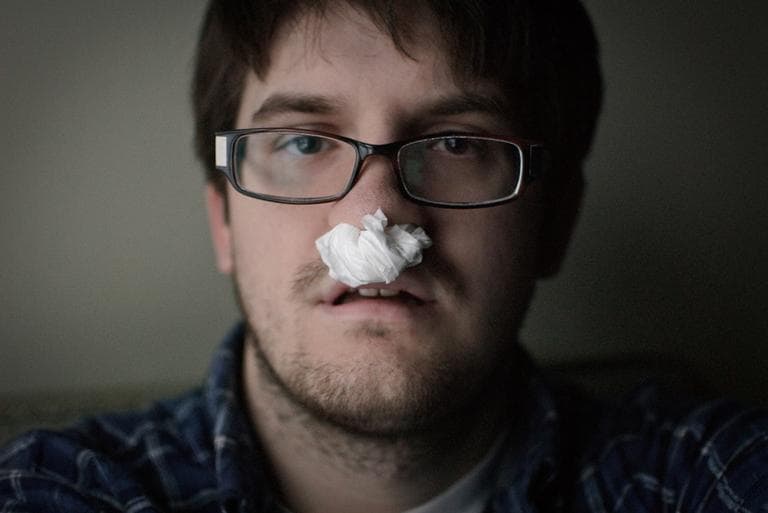Advertisement
The Importance Of Being Mucus

You may think mucus is nothing more than the lowly byproduct of a sneeze or the thick goo that spews from a hacking cough. But mucus is actually one of the many important players of your immune system. Your nose, mouth, throat, lungs, stomach, intestinal tract, genital area — pretty much anything that comes in contact with stuff from the outside world — all have mucosa membranes. Now scientists are one step closer to harnessing the power of mucus at catching and trapping viruses.
Researchers, led by Katharina Ribbeck, MIT professor of biological engineering, added to the growing body of evidence that mucins (proteins abundant in mucus) are perhaps the magic virus-fighting ingredient. Anne Trafton of the MIT News Office wrote about the new findings — here's an excerpt:
For this study, which appeared in a recent issue of the journal Biomacromolecules, Ribbeck and her students created a gel from purified mucins. The researchers coated human epithelial cells with a layer of this gel and then exposed them to human papilloma virus, influenza A and Merkel cell polyomavirus. All three viruses were trapped in the mucin gel, preventing them from infecting the cells.
...
Ribbeck speculates that the viruses are trapped by the sugar molecules found on mucins.
Mucin-bound sugars are similar to those on cell surfaces, which viruses normally latch onto. This similarity would allow these molecules to serve as decoys that capture viruses before they reach their destinations.
In their study, funded by the National Institutes of Health, the researchers also found that salt has a strong effect on how effectively mucins block viral entry. High salt concentration makes the mucins less penetrable, which offers a possible explanation for why gargling or rinsing the nasal passages with salt water often soothes cold or flu symptoms, Ribbeck says.
Sounds promising, right?
Here you have this biopolymer matrix of mucins, catching viruses and holding onto them — think of a protective mesh of velcro. And making things more acidic or adding enough salt turns the mucin matrix into super velcro. Viruses, beware.
Advertisement

But, just to clarify: The mucins the researchers tested weren't from humans. They were from pigs — the stomachs of pigs, to be exact. (In the experiment, the porcine mucins were coupled with human cells and were biocompatible.)
Ribbeck and team noted how previous research already suggests that human mucins play an important role in fighting off viruses, but they stressed that "obtaining large quantities" of those human mucins (like those found in breast milk) would be "difficult." That's why they chose to explore porcine mucins instead.
With pigs — well, you can harvest mucins from their stomachs "in bulk," as the researchers wrote, making them an "attractive alternative source for mucin glycoproteins."
It's a matter of scale, I suppose.
The researchers are optimistic; they concluded their paper by envisioning these virus-trapping porcine mucins as additives to all sorts of hygiene products -- mouth rinse, toothpaste, wound ointments, genital lubricants.
"We envision porcine gastric mucins to be promising antiviral components for future biomedical applications," they wrote.
Looks like this little piggy went to lab, not market.
This program aired on April 26, 2012. The audio for this program is not available.